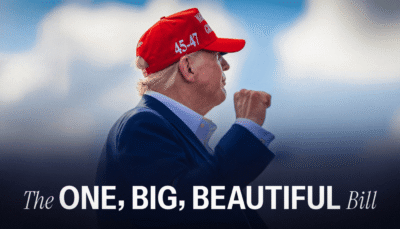A coalition of nearly 30 crypto advocacy organizations is urging the U.S. Securities and Exchange Commission (SEC) to issue clear guidelines on how cryptocurrency staking should be regulated—arguing it is a technical function, not an investment contract under federal securities law.
Led by the Crypto Council for Innovation (CCI) and the Proof of Stake Alliance (POSA), the group submitted a detailed letter on April 30 to SEC Commissioner Hester Peirce, who oversees the agency’s Crypto Task Force. The coalition emphasized that staking—where users lock up crypto tokens to secure blockchain networks—is a core infrastructure component, not a profit-driven enterprise relying on third parties.
“Staking isn’t niche—it’s the backbone of the decentralized internet,” the letter stated, arguing that staking is essential to blockchain consensus mechanisms, not a speculative financial product.

The appeal responds to an SEC request for public input on whether staking and liquid staking services should fall under securities regulation. The coalition called for a balanced, principles-based framework that would support innovation while maintaining investor protections—particularly for financial products like exchange-traded products (ETPs).
Crypto leaders warn that overly strict rules could drive staking innovation offshore, weakening the U.S. crypto industry’s competitiveness.
Staking Is Infrastructure, Not a Security, Industry Says
The coalition’s core message is that staking fails to meet the Howey Test, the legal standard used to determine whether an arrangement qualifies as a security. Unlike traditional investments, staking rewards are generated automatically by blockchain protocols—not by the managerial efforts of centralized entities.
Stakers also retain ownership of their assets, and staking providers don’t control the yield mechanism, the group argued. Therefore, applying standard securities rules would mischaracterize staking’s technical nature.
The letter asked the SEC to follow the same logic it applied to proof-of-work mining, where the agency refrained from treating mining as a securities activity. Staking, like mining, relies on decentralized, permissionless systems, not corporate governance structures.
“In the past 4 months, we’ve seen more movement and constructive dialogue with the SEC than in the past 4 years,” the letter noted, signaling increased willingness from both sides to collaborate on policy.
“Now, the industry is stepping up with concrete principles to include in guidance — a reflection of this new collaborative approach.”
The group also proposed industry-drafted principles to shape future SEC rulemaking—marking a shift away from adversarial posturing toward regulatory engagement.
Top Crypto Firms Rally Behind Staking Campaign
The push for staking clarity is backed by some of crypto’s most influential players. The Proof of Stake Alliance includes Andreessen Horowitz (a16z), Consensys, and Kraken—all key contributors to Ethereum’s staking infrastructure.
Kraken, notably, resumed U.S. staking services in 2024 after regulatory setbacks last year, underscoring the ongoing demand and legal complexity surrounding staking in the U.S.
Meanwhile, the SEC has yet to approve an ETF that incorporates staking. On April 14, the agency delayed a decision on whether Grayscale’s proposed Ether ETF could include staking rewards—keeping both asset managers and investors in regulatory limbo.
Still, signs of change are emerging. Bloomberg ETF analyst James Seyffart has projected that an Ether ETF with staking could gain approval as early as May, suggesting momentum may be shifting.
For now, the industry’s message is clear: staking is here to stay, and regulatory clarity is urgently needed to support its safe and legal integration into the U.S. financial system.
Quick Facts
- A crypto coalition led by CCI and POSA has submitted a request for clear SEC guidance on staking regulation.
- The group argues that staking is a technical process, not a security, and should not fall under securities law.
- They propose a principles-based approach to allow staking in exchange-traded products (ETPs).
- Major industry players, including a16z, Consensys, and Kraken, support the initiative for regulatory transparency.





